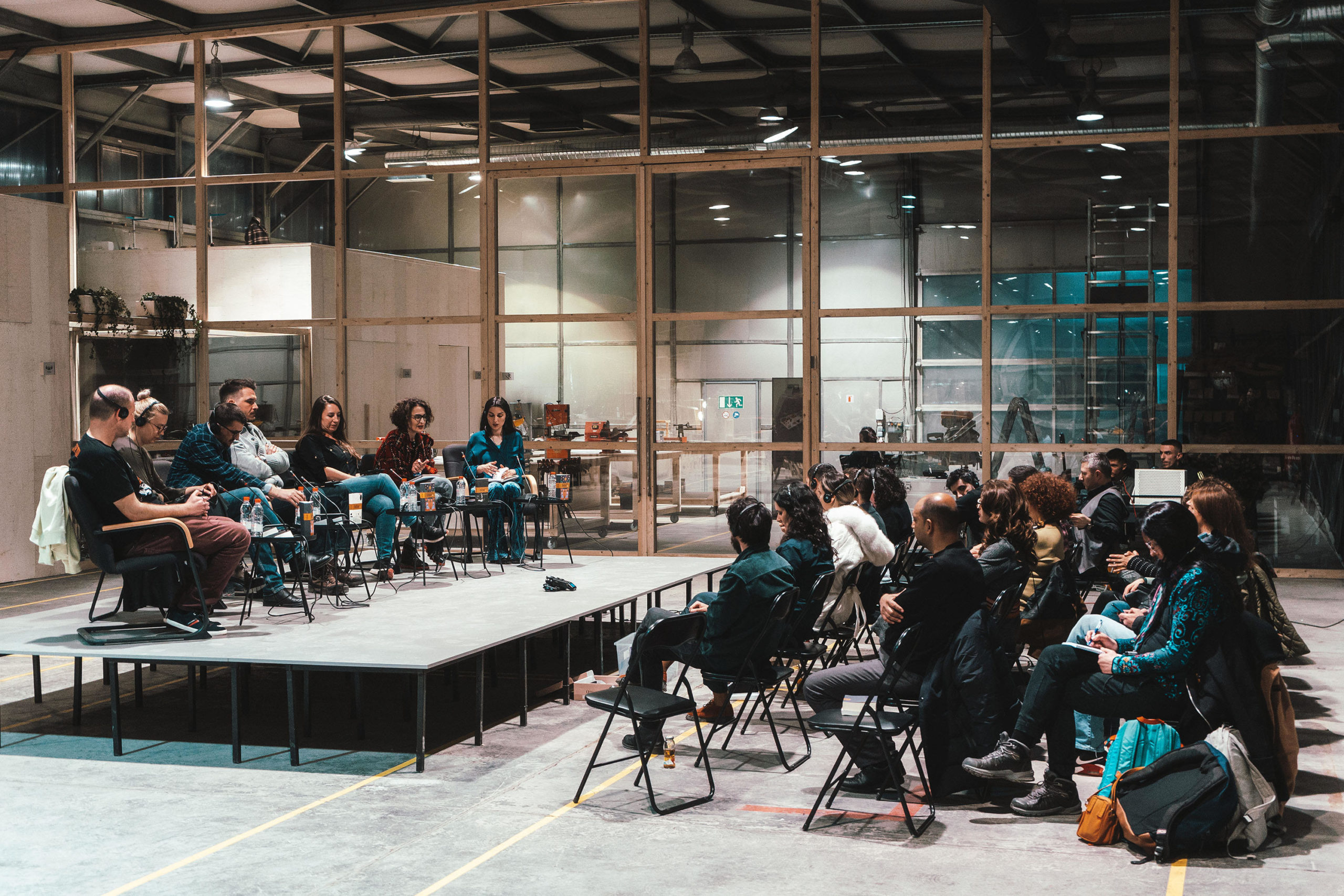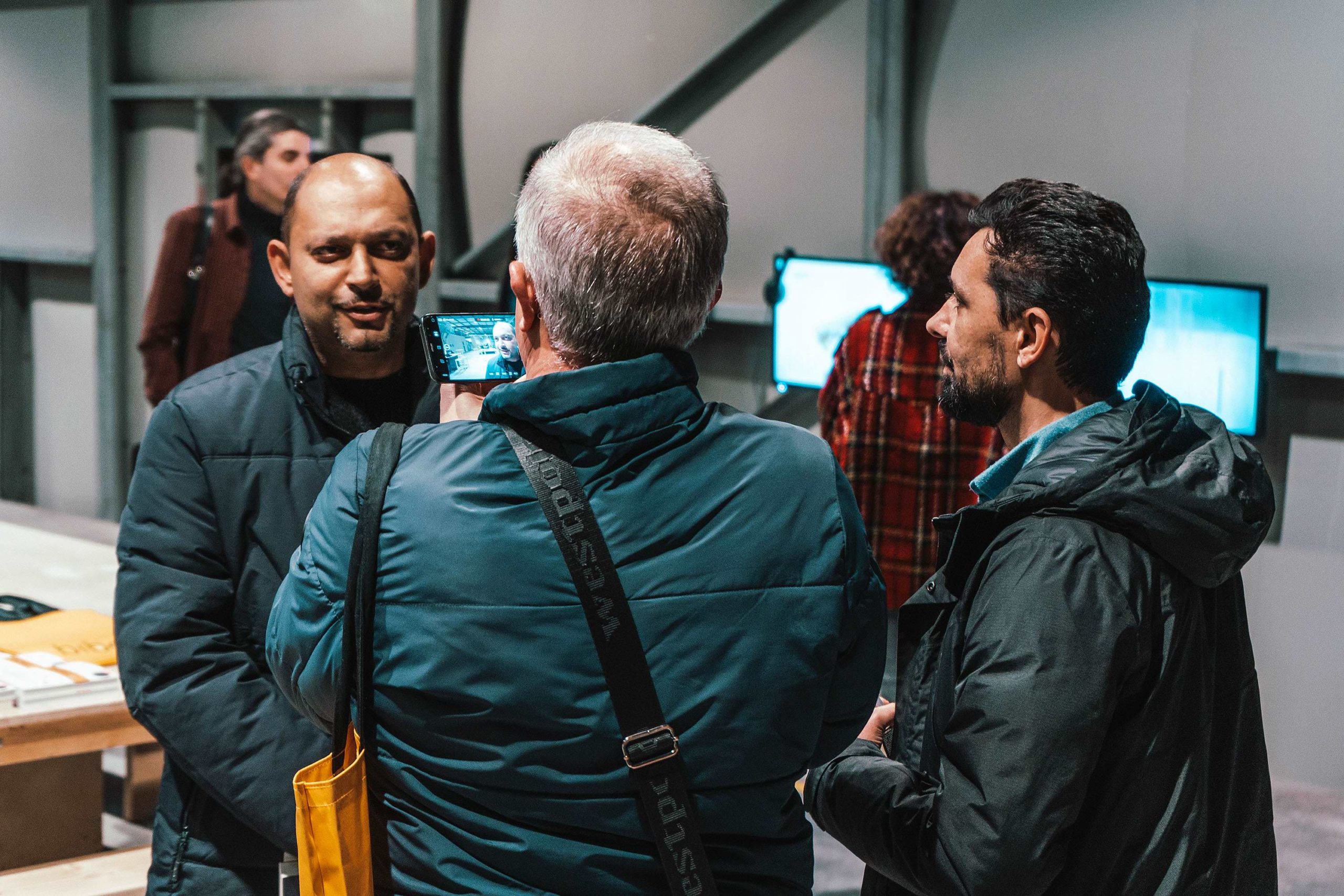After last night’s presentation in Pristina, tonight the Biber collections of anti-war short stories and stories about reconciliation were presented in Prizren at Autostrada Hangar.
The collections were promoted by a panel made up of Biber 03 jury member Rumena Bužarovska (Skopje), and authors of published stories from the Biber 03 and Biber 04 Contest: Stefan Slavković (Belgrade), Ante Storić (Šibenik), Vesa Qena (Pristina), Timer Topanica (Pristina), and Katarina Milićević (Biber Team, Centre for Nonviolent Action Sarajevo-Belgrade). Donjete Murati (Pristina) was the moderator.
The promotion was organised by the Humanitarian Law Centre Kosovo and the Centre for Nonviolent Action Sarajevo-Belgrade.
Biber is a short story contest for activist stories in Albanian, Bosnian, Croatian, Macedonian, Montenegrin, and Serbian. It is organised by the Centre for Nonviolent Action Sarajevo-Belgrade. The concept originated from a group of young people from the region at a peace training in 2015. In addition to promoting peace and reconciliation, the contest also aims to contribute to better understanding among people and to the translation of literature from neighbouring languages.
Katarina Milićević from the Biber Team and the Centre for Nonviolent Action said:
“We want to encourage authors to write anti-war stories, stories that overcome prejudice, that cross borders.”
Recalling the time of war, as well as today’s threats of violence, she pointed out that we must think about how much of this burden we will be leaving to future generations.
Rumena Bužarovska said she joined the jury because she liked the initiative and because it included multiple languages.
“In Macedonia, literature from the region is hard to come by, so it was interesting to read stories from other places, especially from Kosovo. Also, the war is something of a taboo topic in Macedonia, not much is said about it, and that’s another reason why this contest was important for me. Another thing is that the Macedonian language was a minority language in Yugoslavia and it was important for me to see it equally represented in this collection.”
Speaking about the importance of socially engaged literature, she added, “Stories are a natural way to arrive at empathy, to understand others. And they are documents of their times.”
When asked what his story was about, the author Stefan Slavković said that while working as a reporter in 2015, he saw that there was a graveyard on the border between Serbia and Croatia, on no-man’s-land. It was sad to see a graveyard that ended up in no-man’s-land, even worse to see some 50-60 refugees sleeping there. This is where he got the idea for his story “Tovarnik”. He added that he wanted to produce a productive uncomfortable feeling in the reader and empathy towards these people.
Vesa Qena said that her story “Shija e gjalpit të kikirikut” [The Taste of Peanut Butter] was based on her experience when she was a child refugee, staying in Macedonia with relatives. She added:
“When I grew up and learned about all the things that happened during the war, I was in shock, I couldn’t believe it and I wondered where was I during all that time.”
Author Ante Storić from Šibenik said that the initial inspiration for his story “Lito” [Summer] came from when he was doing research for a documentary about a punk band and stumbled upon a barrage of nationalistic comments on a YouTube channel. When asked by someone from the audience whether Croatia was contextually in the Western Balkans, Ante responded by saying:
“I have no idea what this Western Balkans really is. I don’t know what Croatia is either. And where exactly is the border between Western and Eastern Balkans? I hate borders.”
Imer Topanica works as a reporter and did not write his story “Šest” [Six] specifically for this contest, but earlier, after doing research on rapes of women during the war. He said:
“This is a serious contest, needed here in the Balkans. I don’t think it can resolve some things among us, but it can show us different perspectives. We have an opportunity to learn a lot about each other.”
Four contests have been held to date, with a collection of the 25 best stories published after each one. The collections are multilingual so that every story is published in Albanian, Macedonian and Bosnian/Croatian/Serbian/Montenegrin. Electronic editions of all Biber collections are available at https://biber.nenasilje.org/biber-price/ and are free to download.
The fifth Biber Contest is currently under way and receiving submissions until 1 June 2022. It is open to anyone who is inspired to write about these topics, be they already established and published authors or just starting out. The three best stories will receive awards. For more information about the Contest, go to biber.nenasilje.org.
Photographs by: Baris Karamuco
Link to photo gallery: https://nenasilje.org/foto-biber-promocija-u-prizrenu-18-03-2022/

